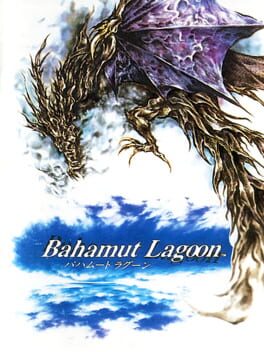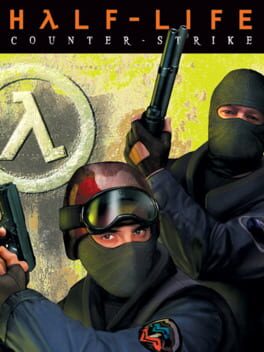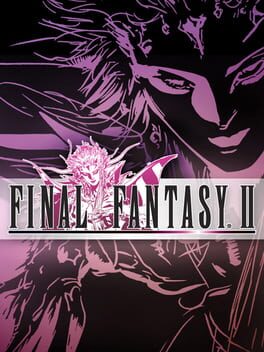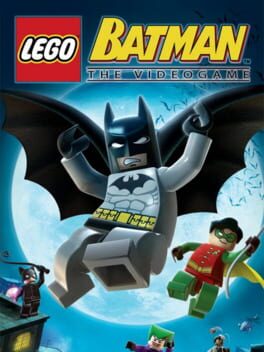DeadDuck
140 reviews liked by DeadDuck
Bahamut Lagoon
1996
Counter-Strike 1.6
2000
i have conducted a bit of research before deciding to write something on this game. i have read quite a few reviews from other players. i have tried to see if there were aspects of the game that slipped from my grasp, or perspectives that shed a different light on it. to my surprise, the game was always homogeneously reviewed. the topics of discussion were always roughly the same and could be summed up in a few points: a boring and frustrating dungeon design; a derivative approach to its story; an uninspired mechanic in the form of keywords to extract plot-relevant information; a shooting for the stars approach to gameplay mechanics; a complete obfuscation of said mechanics which the player can’t ever come to understand without some sort of guide. some would bring up how the game always ranked poorly, and likely at the bottom of the lists, in every site’s final fantasy series game ranking. most would mention how they came to know the game as ‘the bad one’ of the franchise but felt like they could find some good in there and gave it a good try to possibly rediscover an hidden gem. but in hindsight all this homogeneity may not be as surprising as one may think. it is just a testament to the fact that the game truly is as dry as it may look and sound and i don’t think i can add anything of value to any of the points mentioned before. the mere statement and restatement of them, across the years and among several rereleases, makes it clear that there is not much else to catch on to.
but the value of bad videogames is in recognizing how fundamental they can be for making good games in the future. i have to respect final fantasy 2, because the game’s experimentation was foundational for finding out the correct mix of gameplay mechanics to adopt for later titles. the game’s openness to build customization (regardless of the fact that it has many elements that contrast this very feature) has without a doubt led to the rationalization that this level of flexibility is a little too excessive, but the sentiment isn’t wrong, and this led to the creation of the job class system of final fantasy 3 and 5; similarly the various fourth slot members can be clearly seen as a tough learning experience for the far more solid party rotations of final fantasy 4 and 6, where the first has a much more solid progression curve built around having Cecil as the party’s “pivot” while others rotate around him, and the latter is able to create scenarios by separating the party at times and divide the narrative into different parts. i must admit that i am not familiar with akitoshi kawazu’s work with the saga series prior to this playthrough, but i expect it to also have been tangentially influenced by the development of final fantasy 2 as well. moreover, i believe that the somber tone of this game allowed square to position itself into a different part of the role playing market with respect to its big competitor dragon quest, besides pure game mechanics, eventually bringing games likes final fantasy 4 and 6 in a few years. given all this, i am thankful for having played this game, as it gave me a sort of historical framework to better understand the progression of a game series i appreciate. so thank you, final fantasy 2, and farewell!
but the value of bad videogames is in recognizing how fundamental they can be for making good games in the future. i have to respect final fantasy 2, because the game’s experimentation was foundational for finding out the correct mix of gameplay mechanics to adopt for later titles. the game’s openness to build customization (regardless of the fact that it has many elements that contrast this very feature) has without a doubt led to the rationalization that this level of flexibility is a little too excessive, but the sentiment isn’t wrong, and this led to the creation of the job class system of final fantasy 3 and 5; similarly the various fourth slot members can be clearly seen as a tough learning experience for the far more solid party rotations of final fantasy 4 and 6, where the first has a much more solid progression curve built around having Cecil as the party’s “pivot” while others rotate around him, and the latter is able to create scenarios by separating the party at times and divide the narrative into different parts. i must admit that i am not familiar with akitoshi kawazu’s work with the saga series prior to this playthrough, but i expect it to also have been tangentially influenced by the development of final fantasy 2 as well. moreover, i believe that the somber tone of this game allowed square to position itself into a different part of the role playing market with respect to its big competitor dragon quest, besides pure game mechanics, eventually bringing games likes final fantasy 4 and 6 in a few years. given all this, i am thankful for having played this game, as it gave me a sort of historical framework to better understand the progression of a game series i appreciate. so thank you, final fantasy 2, and farewell!
Final Fantasy VI
1994
(This is the 98th game in my challenge to go through many known games in chronological order starting in 1990. The spreadsheet/blog is in my bio.)
Couldn't really bring myself to get back to this game after having played it for 10 or so hours a while back. Probably a prime candidate to be replayed some time in the future but for now, there are two main reasons for why I ended up dropping this.
1) I played a lot of Final Fantasy the past year, 3, 4, 5 and now 6, in addition to other JRPGs of its time. As commendable and ahead of the pack Final Fantasy was at this point, these turn based battles are usually tolerable at best, considering that the majority of battles are very simple and repetitive in how they unfold. If you loved combat from FF3-5 or even the successors to FF6, then this should not discourage you from playing FF6.
2) The above would be more tolerable if I enjoyed the dialogue and liked the cast of characters as well as where the story was headed. In this regard, FF6 chooses to do things differently to other entries in the series, which, again, is very much going to be something each individual will have their preferences about. In FF6, there are a lot of "main characters" instead of one or up to 4 of them, and you are sent back and forth between them over the course of this game. Considering that there are multiple characters with mysterious backgrounds who don't have much in personality in the early going, I thought giving them little screen time made me care very little about pretty much the entire cast as a result, at least during the time I played. The resolutions might be satisfying, but combined with everything else, I could not make myself play this for 20-30+ more hours to see the results.
Again, I might revisit the game at some point, especially if FF7 and beyond finally make me fans of Final Fantasy games. For now, what I can say, despite my subjective criticisms, is that it is clear during every minute that you play this that FF6 is way beyond 99% of video games at its time in terms of production values. And if there is one thing I really liked about this game, it would be its soundtrack. Terras Theme is definitely my favorite Final Fantasy theme as of now.
But to conclude, FF6 progresses the series forward but the paths it chooses to take in storytelling combined with your affinity (or lack thereof) for the battle system will determine whether you will want to see this through.
Couldn't really bring myself to get back to this game after having played it for 10 or so hours a while back. Probably a prime candidate to be replayed some time in the future but for now, there are two main reasons for why I ended up dropping this.
1) I played a lot of Final Fantasy the past year, 3, 4, 5 and now 6, in addition to other JRPGs of its time. As commendable and ahead of the pack Final Fantasy was at this point, these turn based battles are usually tolerable at best, considering that the majority of battles are very simple and repetitive in how they unfold. If you loved combat from FF3-5 or even the successors to FF6, then this should not discourage you from playing FF6.
2) The above would be more tolerable if I enjoyed the dialogue and liked the cast of characters as well as where the story was headed. In this regard, FF6 chooses to do things differently to other entries in the series, which, again, is very much going to be something each individual will have their preferences about. In FF6, there are a lot of "main characters" instead of one or up to 4 of them, and you are sent back and forth between them over the course of this game. Considering that there are multiple characters with mysterious backgrounds who don't have much in personality in the early going, I thought giving them little screen time made me care very little about pretty much the entire cast as a result, at least during the time I played. The resolutions might be satisfying, but combined with everything else, I could not make myself play this for 20-30+ more hours to see the results.
Again, I might revisit the game at some point, especially if FF7 and beyond finally make me fans of Final Fantasy games. For now, what I can say, despite my subjective criticisms, is that it is clear during every minute that you play this that FF6 is way beyond 99% of video games at its time in terms of production values. And if there is one thing I really liked about this game, it would be its soundtrack. Terras Theme is definitely my favorite Final Fantasy theme as of now.
But to conclude, FF6 progresses the series forward but the paths it chooses to take in storytelling combined with your affinity (or lack thereof) for the battle system will determine whether you will want to see this through.
Live A Live
1994
This review contains spoilers
"Anyone can become the King of Demons... As long as hatred still exists, in any world, at any time..."
I'll never be able to hate again.
I'll never be able to hate again.
we didn't have a lot of money growing up so it was always a treat to get a new video game so age 10 me was really excited to get this for my birthday. unfortunately my childhood gaming station consisted of a busted, lights-faded CRT strategically placed so that every single ounce of potential sunlight from a nearby window would assault the rounded glass. playing stuff with bright colors like Sonic and Mario wasn't much of an issue since I was always able to make out the bright colors but I completely fumbled through this game trying to make out anything through the dark palettes of Gotham City. my poor visibility was so tied to my experience that every memory I try to conjure of this game, continuously to this day, only comes out as a fuzzy, sunbleached, CRT-warped image in my mind.
can I remember this game well enough to even talk about it? nope. was it even a good game? I don't know, probably. 3 stars baby
can I remember this game well enough to even talk about it? nope. was it even a good game? I don't know, probably. 3 stars baby
BioShock Infinite
2013
A fucking braindead game. A violently centrist “gotcha” circlejerk. An absolutely, atrociously defeatist reformist, near-Hobbesian view of the “inevitable” future. Yes, Daisy should’ve shot Comstock’s son in the fucking face. Irrational Games at its most dithering and gutless. To think that the same folks developed System Shock 2! That’s what you get when your “good guy” is a Pinkerton agent.
BioShock Infinite
2013
this game is stupid and ontologically evil
The one word that comes to mind when I think of Bioshock Infinite is 'ambitious.' It is ambitious in it's story, it's departure from series convention, and the ideas the game presents to the player about the true identity of choices, predetermination and randomness, and to an extent, if you'll allow me to be a bit pretentious, metaphysics. And as interesting as I find the ponderings and ideas presented to the player in Bioshock Infinite, I can't help but feel that the game never truly commits to saying much of anything on these ideas. It merely presents them to the player before asking 'would that be fucked up or what' and disappearing for another half hour before doing the same thing. It's tiring, and in a game series that had a first entry so universally acclaimed and lauded for how well it's able to marry it's critiques of Randian Objectivism and real men like Andrew Ryan with it's narrative, characters and immersive environments, Bioshock Infinite feels like a game ashamed of where it came from. I can't help but look at so many aspects of this game as trying to modernize itself to fit the shell of so many different contemporary first person shooters; A recharging shield gauge, the two weapon carry limit, the homogenization of the game's Vigor powers.
Undeniably, there were some parts of the game that felt genuinely fun to play in, but it was never fun in the way that the two previous Bioshocks were, it was fun in the way that other shooters I already don't think to highly of can end up being by merit of their gameplay alone.
Bioshock Infinite trades the claustrophobic, dangerous and unsettling closed environments of the first two games in favor of much more open settings and scenarios that only felt like they truly gave me a chance to take in the beauty of Columbia when I had finished taking all the food and money off my enemies. The first two bioshocks (mainly the first) had a distinct horror vibe to them; you find yourself in a ruined civilization who's very placement in nature can end up killing you, scraping by to survive, often favoring smaller and purposefully low-scale enemy encounters that manage to really accentuate how 'personal' survival felt.
Bioshock Infinite is nothing fucking like that it my god, it is so much less interesting because of it. I honestly can't remember much of any environments from Infinite besides maybe the beach you end up landing in after meeting Elizabeth and the super-capitalist-wage-slave hellhole town before the game goes off the rails with the concept of Rifts, and I guess maybe half of the museum where the game expo dumps Booker's war history to you. Honestly, the biggest detail I remember from there was how loud some of the exhibits were. I had to turn down my tv volume to prevent myself from just locking up and staring at the screen for how much constant, nothing-at-all sound there was. There's an undeniable shift from the encounter design from previous games to be more about straight action, and you see a lot more environments that are designed to be big and open, with lots of room to move through since almost every damn encounter in this game is an arena fight. Nearing the end of the game after you witness the most racist character assassination I've ever seen in a video game, the game felt like a very well-dressed straight line of arena fights through arena fights and I got sick of it. In the old games, you used to be able to sneak around enemies, set up traps for them, and otherwise had more of a choice in how you engaged combat. In infinite, your only choice is to use your two identity-less guns and maybe your vigors, if you care about them at all, which I surprisingly found myself not caring about at all, despite having had gone into very heavy plasmid-centric builds in the previous two games. That was all because the tools the game gave me to engage with it's problems had a sense of identity and proper placement within your arsenal. Getting a new gun or plasmid was often a journey, and getting these new tools felt substantial and rewarding for progression. In Infinite, about halfway through the game you can start finding more of the same guns you already know, but know they're... red, and that makes them... better?
I often hear people complain about how this game lacks any sense of meaningful choices in the story where before, choice was a very central aspect to the series' identity, where you had to choose between harvesting and saving Little Sisters. Sure, it was a very simple choice, but it was a very meaningful one. Sometimes I see people say that this removal of choice was intentional, and aimed to serve as a critique of choice in video games and... I just don't buy it. I honestly, genuinely don't think Ken Levine is a smart enough person to have made such a horrible choice like that on purpose because the rest of the game really doesn't sell me on the fact that this was an intentional decision at all. No matter how I look at it, regardless what that lack of choice is meant to do within the fucked-up lemon of a vehicle for artistic expression that is Bioshock Infinite, choosing to have no choices in this game makes this a worse game in every single way.
I'm not going to act like all these issues didn't come out of left field though. This game had a troubled development, being delayed numerous times, and the end product we have today only really looks like a hollow shell of much of what we saw in promotional material, early gameplay footage and the undelivered promises from the developers. '
This game promised to be so much more than the previous Bioshock games, so much more open, more fast-paced, more cerebral, more explosive, more ambitious. And in the end, Bioshock Infinite was so much more than the games that came before it.
It was so much emptier.
The one word that comes to mind when I think of Bioshock Infinite is 'ambitious.' It is ambitious in it's story, it's departure from series convention, and the ideas the game presents to the player about the true identity of choices, predetermination and randomness, and to an extent, if you'll allow me to be a bit pretentious, metaphysics. And as interesting as I find the ponderings and ideas presented to the player in Bioshock Infinite, I can't help but feel that the game never truly commits to saying much of anything on these ideas. It merely presents them to the player before asking 'would that be fucked up or what' and disappearing for another half hour before doing the same thing. It's tiring, and in a game series that had a first entry so universally acclaimed and lauded for how well it's able to marry it's critiques of Randian Objectivism and real men like Andrew Ryan with it's narrative, characters and immersive environments, Bioshock Infinite feels like a game ashamed of where it came from. I can't help but look at so many aspects of this game as trying to modernize itself to fit the shell of so many different contemporary first person shooters; A recharging shield gauge, the two weapon carry limit, the homogenization of the game's Vigor powers.
Undeniably, there were some parts of the game that felt genuinely fun to play in, but it was never fun in the way that the two previous Bioshocks were, it was fun in the way that other shooters I already don't think to highly of can end up being by merit of their gameplay alone.
Bioshock Infinite trades the claustrophobic, dangerous and unsettling closed environments of the first two games in favor of much more open settings and scenarios that only felt like they truly gave me a chance to take in the beauty of Columbia when I had finished taking all the food and money off my enemies. The first two bioshocks (mainly the first) had a distinct horror vibe to them; you find yourself in a ruined civilization who's very placement in nature can end up killing you, scraping by to survive, often favoring smaller and purposefully low-scale enemy encounters that manage to really accentuate how 'personal' survival felt.
Bioshock Infinite is nothing fucking like that it my god, it is so much less interesting because of it. I honestly can't remember much of any environments from Infinite besides maybe the beach you end up landing in after meeting Elizabeth and the super-capitalist-wage-slave hellhole town before the game goes off the rails with the concept of Rifts, and I guess maybe half of the museum where the game expo dumps Booker's war history to you. Honestly, the biggest detail I remember from there was how loud some of the exhibits were. I had to turn down my tv volume to prevent myself from just locking up and staring at the screen for how much constant, nothing-at-all sound there was. There's an undeniable shift from the encounter design from previous games to be more about straight action, and you see a lot more environments that are designed to be big and open, with lots of room to move through since almost every damn encounter in this game is an arena fight. Nearing the end of the game after you witness the most racist character assassination I've ever seen in a video game, the game felt like a very well-dressed straight line of arena fights through arena fights and I got sick of it. In the old games, you used to be able to sneak around enemies, set up traps for them, and otherwise had more of a choice in how you engaged combat. In infinite, your only choice is to use your two identity-less guns and maybe your vigors, if you care about them at all, which I surprisingly found myself not caring about at all, despite having had gone into very heavy plasmid-centric builds in the previous two games. That was all because the tools the game gave me to engage with it's problems had a sense of identity and proper placement within your arsenal. Getting a new gun or plasmid was often a journey, and getting these new tools felt substantial and rewarding for progression. In Infinite, about halfway through the game you can start finding more of the same guns you already know, but know they're... red, and that makes them... better?
I often hear people complain about how this game lacks any sense of meaningful choices in the story where before, choice was a very central aspect to the series' identity, where you had to choose between harvesting and saving Little Sisters. Sure, it was a very simple choice, but it was a very meaningful one. Sometimes I see people say that this removal of choice was intentional, and aimed to serve as a critique of choice in video games and... I just don't buy it. I honestly, genuinely don't think Ken Levine is a smart enough person to have made such a horrible choice like that on purpose because the rest of the game really doesn't sell me on the fact that this was an intentional decision at all. No matter how I look at it, regardless what that lack of choice is meant to do within the fucked-up lemon of a vehicle for artistic expression that is Bioshock Infinite, choosing to have no choices in this game makes this a worse game in every single way.
I'm not going to act like all these issues didn't come out of left field though. This game had a troubled development, being delayed numerous times, and the end product we have today only really looks like a hollow shell of much of what we saw in promotional material, early gameplay footage and the undelivered promises from the developers. '
This game promised to be so much more than the previous Bioshock games, so much more open, more fast-paced, more cerebral, more explosive, more ambitious. And in the end, Bioshock Infinite was so much more than the games that came before it.
It was so much emptier.
BioShock Infinite
2013
stupid fucking reactionary bullshit. edgy all-lives-matter writing that dares to ask "IS RACISM... BAD?????" because it clearly views 'reacting to racism with reasonable amounts of violence' as a villainous process that the oppressed should be punished for. Bioshock Infinite is aware that oppression is wrong, but it also thinks revolution is wrong, so it holds the centrist and racist view that people should shut the fuck up and keep getting oppressed because it's better than making a fuss. if Bioshock Infinite's absolutely rancid politics make you uncomfortable, don't worry, none of it fucking matters at the end, because it totally jumps the shark and stops having anything to say about oppression because the narrative banks on having shitty, pretentious time travel that makes absolutely no sense. so who even cares? who cares??? why get angry about things the developers clearly never cared about in the first place??
elizabeth and booker have a borderline incestuous relationship, and also elizabeth is a quirky and likable disney princess even though her ass has been locked in a tower for years and her only friend was a terrifying fucking steampunk robot bird thing (with a cool design admittedly) that essentially acted as her warden. she also has a superpower that can rip open portals to other dimensions and timelines, but don't worry, she's completely mentally okay, she's just a lil cheeky, a lil sassy. it sucks, too, because elizabeth is the only fucking character in this entire game that actually works even though her character template is fundamentally flawed. everyone else is either incoherent, a stereotype, or just monstrously annoying like Booker himself, so by comparison elizabeth, the bafflingly overpowered manic pixie dream girl, is a ray of golden fucking sunshine because she clears the bar of being okay as fuck
the gameplay is such a pathetic reduction of what made bioshock 1 & 2 so much fun it's not even funny. you can only hold two guns at a time, a simple but fundamentally damning problem that turns bioshock infinite into just another dime-a-dozen corner & corridor shooter that tries to cover up how shallow it is with even shallower setpieces involving explosions and rail-grinding and fuck this game is fucking garbage. the plasmids - SORRY, VIGORS - aren't even fun. why do vigors even exist??? what's the point? why does this fucking society in the clouds hand out vigors like they're candy even though they're systematically racist and wouldn't arming the vox populi with vigors make them more likely to gdsghsbgfuasdbgfaifasjofbae fuck fuck fuck fuck fuck
1/5 instead of 0.5 because at least elizabeth's hot and the gameplay is... functional, if boring, when it's at its best. total centrist horseshoe-theory dogshit. abysmal copaganda Elizabeth SFM Porn buzzword buzzword grrr fuck
elizabeth and booker have a borderline incestuous relationship, and also elizabeth is a quirky and likable disney princess even though her ass has been locked in a tower for years and her only friend was a terrifying fucking steampunk robot bird thing (with a cool design admittedly) that essentially acted as her warden. she also has a superpower that can rip open portals to other dimensions and timelines, but don't worry, she's completely mentally okay, she's just a lil cheeky, a lil sassy. it sucks, too, because elizabeth is the only fucking character in this entire game that actually works even though her character template is fundamentally flawed. everyone else is either incoherent, a stereotype, or just monstrously annoying like Booker himself, so by comparison elizabeth, the bafflingly overpowered manic pixie dream girl, is a ray of golden fucking sunshine because she clears the bar of being okay as fuck
the gameplay is such a pathetic reduction of what made bioshock 1 & 2 so much fun it's not even funny. you can only hold two guns at a time, a simple but fundamentally damning problem that turns bioshock infinite into just another dime-a-dozen corner & corridor shooter that tries to cover up how shallow it is with even shallower setpieces involving explosions and rail-grinding and fuck this game is fucking garbage. the plasmids - SORRY, VIGORS - aren't even fun. why do vigors even exist??? what's the point? why does this fucking society in the clouds hand out vigors like they're candy even though they're systematically racist and wouldn't arming the vox populi with vigors make them more likely to gdsghsbgfuasdbgfaifasjofbae fuck fuck fuck fuck fuck
1/5 instead of 0.5 because at least elizabeth's hot and the gameplay is... functional, if boring, when it's at its best. total centrist horseshoe-theory dogshit. abysmal copaganda Elizabeth SFM Porn buzzword buzzword grrr fuck






